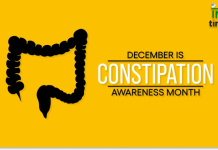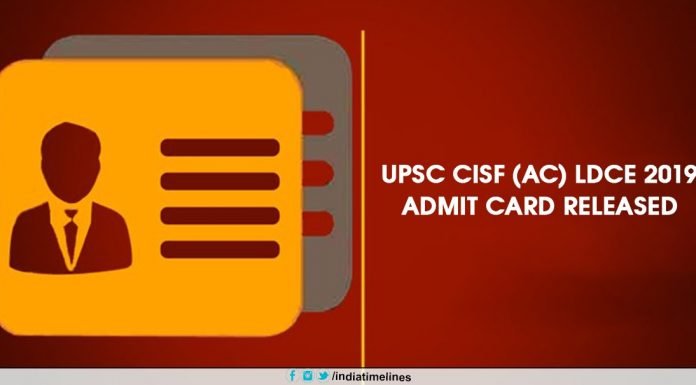
World Development Information Day, observed annually on October 24th, was established by the United Nations (UN) in 1972 to raise awareness about the critical role of information in promoting global development. The day emphasizes the importance of disseminating accurate and timely information to promote sustainable development, eradicate poverty, and address global challenges such as climate change, inequality, and social injustice. This observance also encourages international cooperation and fosters partnerships between governments, civil society, and individuals to create a more informed and empowered global community.
In an era where technology and information are evolving at an unprecedented pace, World Development Information Day serves as a reminder of the transformative power of information in addressing the world’s most pressing issues. It underscores the idea that information is not just a tool for communication but also a catalyst for social, economic, and political change.
The History and Purpose of World Development Information Day
World Development Information Day was conceived as a response to the growing realization that information could play a pivotal role in the development process. The UN General Assembly passed Resolution 3038 (XXVII) on December 19, 1972, establishing this day to coincide with United Nations Day (October 24). The resolution aimed to raise awareness of development issues and mobilize public opinion in favor of greater international cooperation to tackle global challenges.
The overarching goal of World Development Information Day is to highlight how information and communication technologies (ICTs) can be harnessed to accelerate development and improve living standards. The day focuses on:
- Raising Awareness: It encourages individuals, governments, and organizations to spread knowledge about development issues, ensuring that more people are informed and engaged in global efforts toward sustainability.
- Fostering Global Cooperation: World Development Information Day promotes collaboration between nations, NGOs, and private entities to share information and resources, addressing development challenges in a collective and coordinated manner.
- Empowering Communities: By improving access to information, the day seeks to empower marginalized communities, particularly in developing countries, enabling them to participate more fully in their own development and decision-making processes.
The Role of Information in Development
Information is the backbone of decision-making processes in modern societies. It shapes policies, influences behavior, and fosters innovation. For developing countries, access to accurate and timely information can be a game-changer in their journey toward sustainable development. However, the digital divide—the gap between those who have access to technology and information and those who do not—remains a significant barrier to global progress.
Here are key ways in which information contributes to development:
1. Education and Knowledge Sharing
Access to quality education is a fundamental aspect of development, and information plays a critical role in this. Digital platforms, online learning resources, and open-source educational materials have revolutionized the way people in even the most remote parts of the world can learn. For instance, initiatives such as Massive Open Online Courses (MOOCs) provide free or low-cost education to millions globally, contributing to the spread of knowledge and skills essential for personal and societal development.
In many developing nations, information about sustainable agricultural practices, healthcare, and basic life skills can lift entire communities out of poverty. Organizations like the Food and Agriculture Organization (FAO) and the World Health Organization (WHO) use information campaigns to teach farmers new techniques or inform communities about health and sanitation practices.
2. Improving Governance and Accountability
Good governance is a cornerstone of development, and information plays a vital role in ensuring transparency, accountability, and citizen engagement. ICTs enable governments to communicate policies, provide public services more efficiently, and engage with citizens in real-time.
Access to information also allows citizens to hold their governments accountable. Platforms like open data portals enable public scrutiny of government spending, development projects, and policy outcomes, which helps prevent corruption and ensures that public resources are used effectively.
3. Healthcare and Public Health
Information is crucial in the realm of public health. The COVID-19 pandemic underscored the importance of timely and accurate information in saving lives. Public health campaigns, data on infection rates, and guidelines on prevention and treatment were critical in shaping the global response to the crisis. Similarly, information about nutrition, maternal health, disease prevention, and immunization plays a vital role in improving health outcomes in developing countries.
Health organizations such as the WHO and UNICEF rely heavily on information dissemination to educate the public on important health issues. These campaigns often address issues like child mortality, maternal health, and the prevention of communicable diseases like malaria and HIV/AIDS.
4. Economic Development and Entrepreneurship
Access to information can spur economic growth by fostering entrepreneurship and innovation. In the digital age, information is a commodity that can drive economic development, especially in emerging markets. Entrepreneurs rely on information about market trends, consumer behavior, and financial opportunities to grow their businesses.
For instance, microfinance institutions provide financial literacy programs and market information to small business owners in rural areas, enabling them to make informed decisions that contribute to their economic empowerment.
5. Environmental Sustainability
Information is vital for addressing environmental challenges. Climate change, deforestation, and biodiversity loss are global issues that require coordinated responses based on accurate data. Governments, organizations, and individuals must have access to information about environmental risks, resource management strategies, and sustainable practices to mitigate the effects of environmental degradation.
For example, early warning systems that provide information about natural disasters like hurricanes, floods, and droughts can save lives and reduce economic damage. Additionally, public awareness campaigns about recycling, renewable energy, and conservation practices help promote environmental sustainability.
6. Reducing Inequality and Social Injustice
One of the most significant challenges in global development is the persistence of inequality and social injustice. Information can play a powerful role in addressing these issues by raising awareness, promoting advocacy, and empowering marginalized communities.
For example, social media platforms have become instrumental in organizing movements for social justice, from advocating for gender equality to combating racial discrimination. These platforms enable marginalized voices to be heard, and they connect individuals and groups across borders in solidarity with global causes.
The Digital Divide: A Barrier to Development
Despite the transformative potential of information, not everyone has equal access to it. The digital divide—the gap between those who have access to information and communication technologies and those who do not—remains a significant barrier to global development. According to the International Telecommunication Union (ITU), around 37% of the world’s population, or 2.9 billion people, have never used the internet.
This lack of access disproportionately affects people in developing countries, rural areas, and marginalized communities. Without access to digital technologies, these populations are cut off from the opportunities that come with being informed, such as education, employment, healthcare, and civic participation.
Bridging the digital divide is essential for achieving the UN’s Sustainable Development Goals (SDGs). Efforts to expand internet connectivity, provide affordable access to technology, and promote digital literacy are critical to ensuring that information reaches everyone, regardless of their location or socio-economic status.
The Role of the United Nations in Promoting Development Information
The UN has been at the forefront of promoting the use of information to foster global development. Through its specialized agencies, such as the UN Educational, Scientific and Cultural Organization (UNESCO), the UN has launched initiatives to promote media development, freedom of expression, and access to information. UNESCO’s efforts in supporting community radio stations in developing countries, for example, have provided a vital platform for local communities to share knowledge, promote dialogue, and raise awareness about development issues.
Additionally, the UN’s International Telecommunication Union (ITU) works to bridge the digital divide by promoting access to ICTs in underserved areas. ITU’s initiatives focus on expanding internet access, improving digital infrastructure, and promoting digital literacy to ensure that all people can benefit from the digital revolution.
Celebrating World Development Information Day: How You Can Participate
World Development Information Day is an opportunity for individuals, organizations, and governments to reflect on the role of information in shaping a better world. Here are some ways you can participate:
- Raise Awareness: Share information about global development issues through social media, blogs, or community events. Use the hashtag #WorldDevelopmentInformationDay to join the global conversation.
- Support Digital Literacy: Volunteer with organizations that promote digital literacy or donate to initiatives that provide technology and internet access to underserved communities.
- Advocate for Open Data: Support policies that promote transparency, open data, and access to information in your community or country.
- Promote Sustainable Practices: Use your platforms to share information about environmental sustainability, climate change, and other global challenges.
- Get Involved with the UN’s SDGs: Learn more about the United Nations’ Sustainable Development Goals and how you can contribute to achieving them by spreading information and taking action.
India Time Lines
Conclusion
World Development Information Day reminds us that information is a powerful tool for change. It plays a crucial role in promoting sustainable development, reducing inequality, and addressing global challenges. However, for information to truly make a difference, it must be accessible to everyone, regardless of their socio-economic status or geographical location.
As we celebrate this day, it is essential to recognize the importance of bridging the digital divide and ensuring that all people have access to the information they need to improve their lives and contribute to the global development agenda. By fostering global cooperation and empowering communities through information, we can build a more just, equitable, and sustainable world for future generations.




































